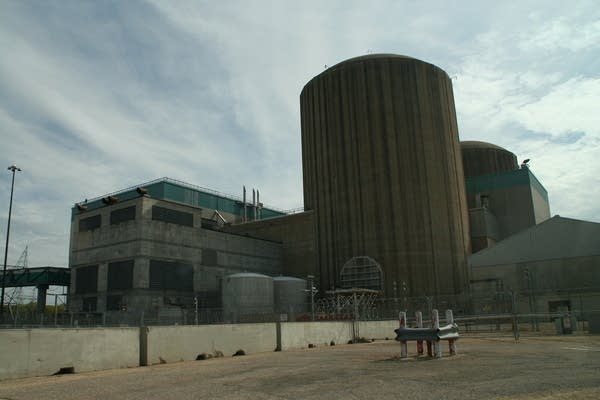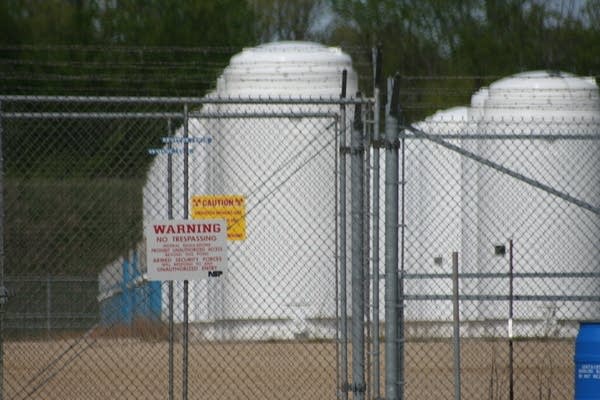Group targets ban on new nuclear plants

A new group is gearing up to try to repeal Minnesota's moratorium on new nuclear power plants. The moratorium was put in place 15 years ago, when Xcel Energy was allowed to store more nuclear waste at its Prairie Island plant.
The Legislature came close to repealing it last year, and this new group is promising to push harder in the coming session.
The new group is called Sensible Energy Solutions for Minnesota, and it has labor and business representatives on its board of advisors.
The president of the Minnesota Chamber of Commerce, David Olson, says the moratorium is outdated.
Create a More Connected Minnesota
MPR News is your trusted resource for the news you need. With your support, MPR News brings accessible, courageous journalism and authentic conversation to everyone - free of paywalls and barriers. Your gift makes a difference.
"We are going to need more baseload power. Obviously all the utilities are making progress on renewables, and I think people are starting to question at least the older coal plants. Why wouldn't we at least throw nuclear into the conversation?" Olson said.
Nuclear is part of the conversation across the country. Utilities and policymakers are looking for ways to reduce contributions to climate change while meeting ever-increasing demand for electricity.

Nuclear power isn't completely free of greenhouse gases, as some advocates claim. The process of mining and enriching uranium is very energy-intensive, and it also produces other, more potent greenhouse gases like chlorofluorocarbons.
But it's the cost of nuclear power plants that is causing the trouble these days.
The industry has a record of cost overruns. The plants built in the 1970s were, on average, three times as expensive as projected, according to a study by the Union of Concerned Scientists, a group critical of nuclear power.
The 26 plants on the drawing board today are projected to cost $9 billion on average, and industry analysts warn those numbers could be vastly underestimated.
Wall Street and the industry itself are unwilling to build new plants without major government subsidies.
But the chamber's David Olson says nuclear should at least be on the table in Minnesota.
"We're not saying we should build them tomorrow, we're not saying they're the answer. We're just saying it ought to be an option that gets looked at, and if the numbers don't work, then we ought to focus on something else. But in fairness to Minnesota, we can't even talk about it," said Olson.
"The moratorium is not on discussion. The moratorium is on the issuance of a certificate of need," responded
That's Rep. Bill Hilty, DFL-Finlayson, who chairs the House Energy Committee in the Minnesota Legislature. He opposes lifting the ban.
"To say you can't talk about it is pretty disingenuous," said Hilty. "We already had seven hours of hearings about it in the House and the Legislative Energy Commission. If that's not talking about it, I don't know what is."
The Energy Committee, and the House as a whole, voted last spring to keep the moratorium. The Senate voted to repeal it. But Hilty says that was a floor vote, which took place without much debate.
Hilty says he thinks the push to drop the moratorium is really about letting the state off the hook on renewables and conservation.
"As soon as it's possible for people to start talking about nuclear as a viable option in Minnesota, there's going to be an enormous amount of pressure to abandon or back off on all of the renewable and conservation initiatives that we currently have in place," said Hilty.
All of Minnesota's utilities have plans in place to meet increasing demand without new nuclear power. But both Xcel Energy and Great River Energy say they think the moratorium should be dropped.
Minnesota currently has two nuclear power plants, at Monticello and Prairie Island. They provide about 20 percent of Minnesota's electricity.
Both sites are home to above-ground storage casks holding high-level nuclear waste. That's part of a national problem -- the lack of a permanent storage facility -- a problem that seems to have no immediate solution.
